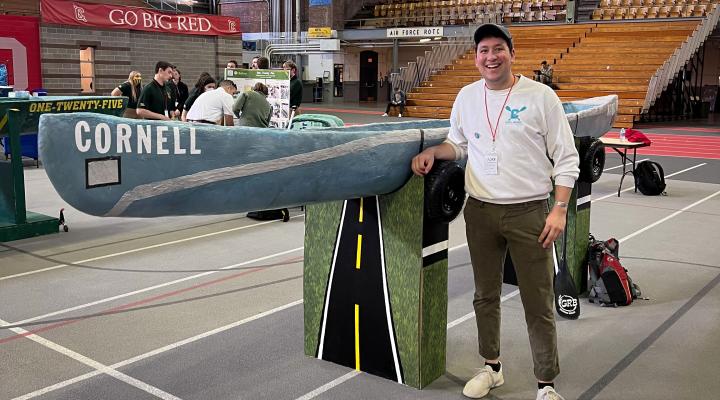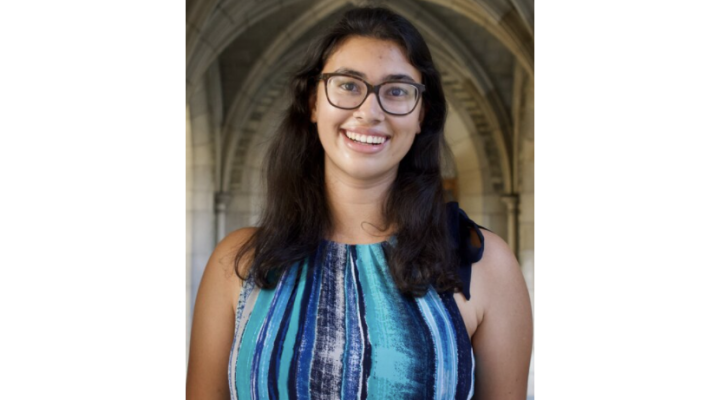What inspired you to pursue a degree in engineering?
I chose to go into engineering because throughout high school, I enjoyed finding practical applications of the math and science I was learning. This was especially true for my mechanics courses. It was a lot of fun to not only learn the formulas the govern the physical world, but see them work in labs, demonstrations, etc. I saw civil engineering as a great way of applying those fundamental physics concepts to real world problems that directly influence people and the built environment.
Tell us about your research at the Bovay Lab.
I've been working in the Lifelines Research group under Professor O'Rourke and Professor Stewart for over a year now. I started during the spring of my Sophomore year. I mainly assist in the design and implementation of large scale tests on pipelines. The project I have been most involved in was testing a new pipe joint design that is resistant to ground deformations such as earthquakes and landslides. For the most part, I designed and built shields that encased the joints buried in the split-basin in order to protect displacement-measuring devices during the "earthquake". I also help set up and take down various mechanical and soil-structure interactions tests on the pipes, and I mount measuring devices we collect data with.
I enjoy that the tests we do are simple mechanics experiments, but with critical and complex structures. And getting dirty in the lab is fun too! My research experience has added a hands-on component to my undergraduate career. It has helped with my problem solving skills and developed my sense of practicality.
This semester I'm also working under Professor McLaskey, studying wave propagation. I will also begin to analytically and experimentally study the steel load frame that will be used to conduct table-top earthquakes.
What are some of your extra-curricular activities?
I helped co-found, and am now on the executive board of the Cornell Food Recovery Network. We're an organization focused on reducing food waste and feeding people. We do this by rescuing food that would otherwise be composted at the end of the night in dining halls and facilitating its distribution into the Ithaca area.
When I'm not in class or in the lab (and it's not ridiculously cold out), I can be found running through Ithaca's trails or downtown at Loaves and Fishes.
What's your favorite part about the CEE major?
My favorite part of the CEE major is the broad range of classes offered. I also really appreciate the opportunity to learn from leaders in our field. The people - faculty, staff, and students - are all great to learn from and work with!




